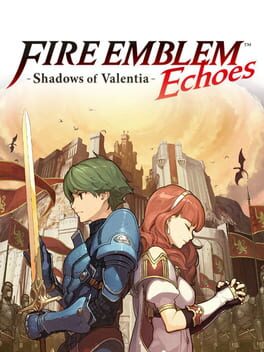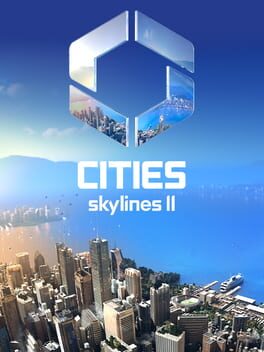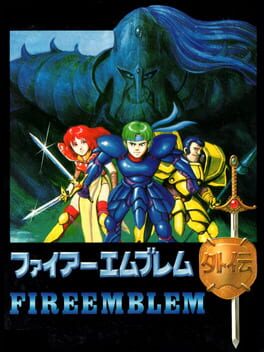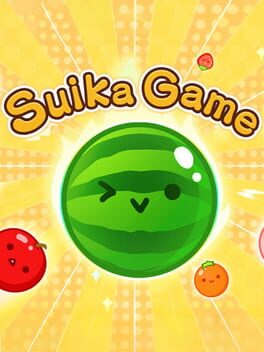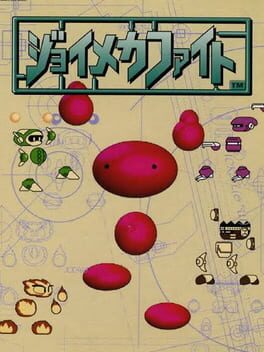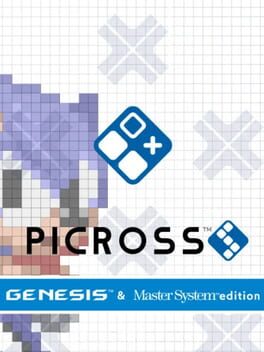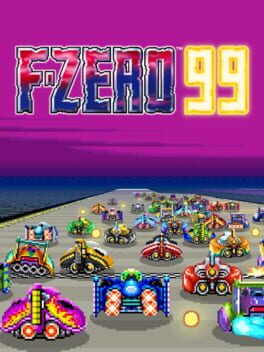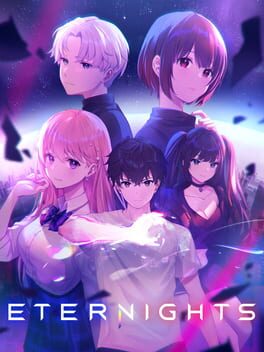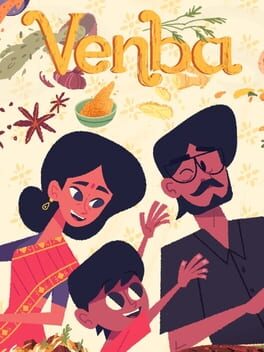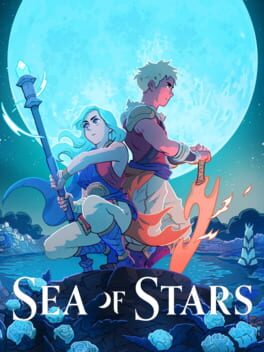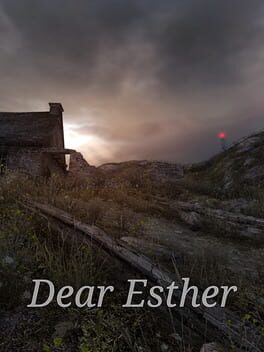tradegood
I originally played the first two acts of Echoes years ago but found it was a little slow paced. Particularly going from the end of Act 1 to starting completely fresh with tutorial maps in Act 2 kind of killed momentum for me. It wasn't until my amazing experience with Fire Emblem Gaiden that I decided to give the remake a second chance, and I'm glad I did.
Shadows of Valentia is a very faithful remake, almost to a fault, which manages to expand on the characters and story in a very strong direction. The presentation of the game is stellar, with outstanding music, artwork, voice acting, prose, and new 3D dungeons which manage to feel right at home in the game.
However, such a faithful remake also made many of the flaws of the original much more apparent. The pacing of the original, while also very slow, was accelerated by having less story beats, dungeon encounters, time taken for deployments, etc. It could be just from playing the games back to back, but SoV felt like a much longer game. Granted I played the DLC and extra maps, which added some time to an already long game, but it did feel like the pacing for this game was a little worse than Gaiden on 3x speed.
On the topic of new characters it had its ups and downs. Cleric Faye was a powerhouse and I thought she was a positive addition to make it feel like less of a boy's club. , I did not like the introduction of Conrad. I think he kind of ruined some of Celica's character development by telling her the act 3 twist, rather than her figuring it out herself. Fernand was a bit of a cartoonish villain for my liking, but I really enjoyed Berkut's final turn at the end. I thought his character had pretty believable motivation for doing what he did, and they handled it well. In terms of the DLC, I thought the new characters were interesting but they never really felt part of the team. I challenged myself to use Emma and Randal through chapters 4 and 5, but it came at the expense of appreciating Zeke/Titania who join late and have a much better story.
Story-wise, I think some of the twists, namely Alm's background and King Rudolf's motivations do seem a little more out of place than they did in FE2. I would have liked to have seen them change it up a bit more than they did, at least to make Rudolf's actions make a little more sense.
I beat the game on hard, and while I was happy to revisit the maps, I think they could have gone further revamping them. I don't think FE2 is particularly well known for its map design, and some of the uninspired choices made it over. The simple weapon system worked fine, and the consumables were a nice addition. The growths in this game were not as abysmal as Gaiden but still the growths are much lower and it always felt like it killed momentum when a character you like leveled up twice and only gained 2 points to a stat like Skill. I played around with reclassing a bit, but it felt a little like a dry run for Three Houses. Having everyone on the battlefield is nice and some of the endgame maps felt appropriately big. It is unfortunate there's no maddening, especially one with no grinding possibilities, but c'est la vie.
Overall, I feel great about the game, but I think I still prefer Gaiden as crazy as that sounds. Something about the minimalism was lost in translation, but this is still an excellent game that feels like a real mix of old and new Fire Emblem.
Shadows of Valentia is a very faithful remake, almost to a fault, which manages to expand on the characters and story in a very strong direction. The presentation of the game is stellar, with outstanding music, artwork, voice acting, prose, and new 3D dungeons which manage to feel right at home in the game.
However, such a faithful remake also made many of the flaws of the original much more apparent. The pacing of the original, while also very slow, was accelerated by having less story beats, dungeon encounters, time taken for deployments, etc. It could be just from playing the games back to back, but SoV felt like a much longer game. Granted I played the DLC and extra maps, which added some time to an already long game, but it did feel like the pacing for this game was a little worse than Gaiden on 3x speed.
On the topic of new characters it had its ups and downs. Cleric Faye was a powerhouse and I thought she was a positive addition to make it feel like less of a boy's club. , I did not like the introduction of Conrad. I think he kind of ruined some of Celica's character development by telling her the act 3 twist, rather than her figuring it out herself. Fernand was a bit of a cartoonish villain for my liking, but I really enjoyed Berkut's final turn at the end. I thought his character had pretty believable motivation for doing what he did, and they handled it well. In terms of the DLC, I thought the new characters were interesting but they never really felt part of the team. I challenged myself to use Emma and Randal through chapters 4 and 5, but it came at the expense of appreciating Zeke/Titania who join late and have a much better story.
Story-wise, I think some of the twists, namely Alm's background and King Rudolf's motivations do seem a little more out of place than they did in FE2. I would have liked to have seen them change it up a bit more than they did, at least to make Rudolf's actions make a little more sense.
I beat the game on hard, and while I was happy to revisit the maps, I think they could have gone further revamping them. I don't think FE2 is particularly well known for its map design, and some of the uninspired choices made it over. The simple weapon system worked fine, and the consumables were a nice addition. The growths in this game were not as abysmal as Gaiden but still the growths are much lower and it always felt like it killed momentum when a character you like leveled up twice and only gained 2 points to a stat like Skill. I played around with reclassing a bit, but it felt a little like a dry run for Three Houses. Having everyone on the battlefield is nice and some of the endgame maps felt appropriately big. It is unfortunate there's no maddening, especially one with no grinding possibilities, but c'est la vie.
Overall, I feel great about the game, but I think I still prefer Gaiden as crazy as that sounds. Something about the minimalism was lost in translation, but this is still an excellent game that feels like a real mix of old and new Fire Emblem.
2023
I went in expecting the worst when it came to the game's performance, but I think I am more underwhelmed by the game's sim aspects. The performance is bad even with a decent PC, and the hitching feels worst. I empathize with Colossal Order, I think they ultimately got carried away trying to render too much geometry and likely had to release the game early and unoptimized due to contracts with Gamepass or Paradox getting impatient and wanting to start their DLC sales cycle as soon as possible. I think the game will always have this cloud looming over them even if a year from now the game will be running fine for most people.
Instead what I think is really troubling is how shallow a lot of the simulation feels after putting some time into it. Obviously Cities 1 had 8 years of patches, expansions, mods, etc. and this game is starting from scratch, but I feel like I've seen what the game has to offer much sooner than I expected. A lot of the improvements seem like they were done under the hood, and aside from a few quality of life improvements, this is highly similar to Cities 1, and there's no way around it. They could have gone further in any direction... making it more simulatory, more arcadey, something... but it's largely the same game.
Ultimately, the game is fine, and it will be a good base for CO to continue to develop on for the rest of the decade, but it does not make the best first impression. They traded in some old problems for some new ones, let's hope these are easier to fix.
Instead what I think is really troubling is how shallow a lot of the simulation feels after putting some time into it. Obviously Cities 1 had 8 years of patches, expansions, mods, etc. and this game is starting from scratch, but I feel like I've seen what the game has to offer much sooner than I expected. A lot of the improvements seem like they were done under the hood, and aside from a few quality of life improvements, this is highly similar to Cities 1, and there's no way around it. They could have gone further in any direction... making it more simulatory, more arcadey, something... but it's largely the same game.
Ultimately, the game is fine, and it will be a good base for CO to continue to develop on for the rest of the decade, but it does not make the best first impression. They traded in some old problems for some new ones, let's hope these are easier to fix.
1992
Fire Emblem 2 is a totally different game than any other FE, and has an incredible amount of unrealized ambition that is fascinating to play through. In many ways it's like they just created a standard JRPG first and overlayed FE characters and rules on top of it.
Sometimes a game thoroughly engrosses you and pushes you to a limit, and the last several nights I've been staying up late, addicted to pushing through as far as I could. At 300% speed and with most maps taking less than 10 minutes, I was on the climb and constantly optimizing my strategy. The game benefits by fast forwarding in long sittings, and I think if I took my time with it more I would not have as good of a time.
The game is repetitive and the maps aren't very thoughtfully designed (most are open battlefields), but I felt like it forced me to really understand my team's strengths and weaknesses. Even though accuracy/dodge felt punishing at times, the lack of vulneraries and inventory, surprising difficulty spikes, and not being able to see where you're deploying units, this game really spoke to me.
I love the magic system of this game, every spell costs your healers and sages EXP, but it also costs the enemies EXP so sometimes they will dig their own grave for you. Getting to customize your team felt really good, and every time you gain a promotion it feels significant. The stat growths in general are pretty small though, and I did have some early game stars fall behind later on. Having the option to return to a shrine or cave to grind did help, as there were a few times I was close to promotion with a key player and decided to just stick around until they earned it.
The game's story is great, and I love just hanging out in the different towns. Some of the storylines, such as Zeke and Tatiana said a lot very succinctly. As with any fire emblem game, much of the storytelling happens on a personal level with your units. I lost a few members of my team in dramatic fashion. Mathilda started great but couldn't keep up, and fell to the zombie dragon swarm. Atlus was ambushed by summons and I lost him in act 4. Even up to the last battle, I lost my dependable scout Robin in a very heartbreaking but attempt to move quickly to the final boss.
But I also had some characters really surprise me. My sniper Python was pretty useless most of the game until promoting to Bow Knight, and saved us in countless scraps. I was having a hard time feeding Est enough EXP to promote her, but once I did, the whitewing sisters made Celica's route a snap. Jennie and May also ruled. While Alm was stuck in the volcano, Clair almost solo killed 20 dragons.
Once Tatiana gained Fortify, the most broken healing spell in the game, I had mathematically won by teaming her with Silk. From there I just enjoyed melting away any enemies that got in my way like butter. The final showdown was truly fantastic. This game gave me a high in a way that I haven't felt in a long time.
Sometimes a game thoroughly engrosses you and pushes you to a limit, and the last several nights I've been staying up late, addicted to pushing through as far as I could. At 300% speed and with most maps taking less than 10 minutes, I was on the climb and constantly optimizing my strategy. The game benefits by fast forwarding in long sittings, and I think if I took my time with it more I would not have as good of a time.
The game is repetitive and the maps aren't very thoughtfully designed (most are open battlefields), but I felt like it forced me to really understand my team's strengths and weaknesses. Even though accuracy/dodge felt punishing at times, the lack of vulneraries and inventory, surprising difficulty spikes, and not being able to see where you're deploying units, this game really spoke to me.
I love the magic system of this game, every spell costs your healers and sages EXP, but it also costs the enemies EXP so sometimes they will dig their own grave for you. Getting to customize your team felt really good, and every time you gain a promotion it feels significant. The stat growths in general are pretty small though, and I did have some early game stars fall behind later on. Having the option to return to a shrine or cave to grind did help, as there were a few times I was close to promotion with a key player and decided to just stick around until they earned it.
The game's story is great, and I love just hanging out in the different towns. Some of the storylines, such as Zeke and Tatiana said a lot very succinctly. As with any fire emblem game, much of the storytelling happens on a personal level with your units. I lost a few members of my team in dramatic fashion. Mathilda started great but couldn't keep up, and fell to the zombie dragon swarm. Atlus was ambushed by summons and I lost him in act 4. Even up to the last battle, I lost my dependable scout Robin in a very heartbreaking but attempt to move quickly to the final boss.
But I also had some characters really surprise me. My sniper Python was pretty useless most of the game until promoting to Bow Knight, and saved us in countless scraps. I was having a hard time feeding Est enough EXP to promote her, but once I did, the whitewing sisters made Celica's route a snap. Jennie and May also ruled. While Alm was stuck in the volcano, Clair almost solo killed 20 dragons.
Once Tatiana gained Fortify, the most broken healing spell in the game, I had mathematically won by teaming her with Silk. From there I just enjoyed melting away any enemies that got in my way like butter. The final showdown was truly fantastic. This game gave me a high in a way that I haven't felt in a long time.
Super Mario Bros. Wonder is a good time. It feels like a sequel to the Mario Maker series more than it feels like a sequel to Mario World or the "New" subseries. If Mario Maker and its kaizo and troll levels are a postmodern lens to view the mario formula, then Mario Wonder feels like the logical next step of being an earnest metamodern attempt of Nintendo's professionals to try to show the audience something familiar but new. Finally Nintendo gave a little bit of creative liberty to the people who have the full set of development tools and it’s good to let them go a little off the rails even if it comes at the expense of making a fully cohesive game.
There are a few misses when it comes to trying to subvert the audience expectations (such as just giving you the royal seed as a freebie in world 3 instead of having you do a castle). But overall it's hard to nitpick when you do get plenty of secrets and just about every level brings something interesting to the table. It's funny how much Mario fans want worlds to be incorporated in games like Mario Maker 2, and then this game finally included them… as a major afterthought. It doesn’t bother to have much consistent theming, and aside from light minimap exploration there’s not much of a point in this game separating things into 'worlds'.
I was a little worried it would feel like flash over substance but the core of the levels is platforming that’s as good as its ever been. The powerups have more restraint than I expected and but still a ton of utility in adding game variety. Though it does feel a little like Bubble Mario is the Mario Odyssey powerup and Drill Mario is the Splatoon powerup. I’m less keen on the badges, but I can appreciate that it’s fairly optional and some make the game harder. I think the mario team did a good job of balancing each level within the itself… but I do wish at some point I was in danger of having a ‘game over’. I also appreciate the little challenges with unique clear conditions all over the map, and while it’s good for short portable play sessions it feels like the same kind of bloat that makes Mario Odyssey not as replayable as its predecessors. Mario 3 + World are easy to pick up and see how far you can get in 2 hours, but I don’t think this game works that way.
There are a few misses when it comes to trying to subvert the audience expectations (such as just giving you the royal seed as a freebie in world 3 instead of having you do a castle). But overall it's hard to nitpick when you do get plenty of secrets and just about every level brings something interesting to the table. It's funny how much Mario fans want worlds to be incorporated in games like Mario Maker 2, and then this game finally included them… as a major afterthought. It doesn’t bother to have much consistent theming, and aside from light minimap exploration there’s not much of a point in this game separating things into 'worlds'.
I was a little worried it would feel like flash over substance but the core of the levels is platforming that’s as good as its ever been. The powerups have more restraint than I expected and but still a ton of utility in adding game variety. Though it does feel a little like Bubble Mario is the Mario Odyssey powerup and Drill Mario is the Splatoon powerup. I’m less keen on the badges, but I can appreciate that it’s fairly optional and some make the game harder. I think the mario team did a good job of balancing each level within the itself… but I do wish at some point I was in danger of having a ‘game over’. I also appreciate the little challenges with unique clear conditions all over the map, and while it’s good for short portable play sessions it feels like the same kind of bloat that makes Mario Odyssey not as replayable as its predecessors. Mario 3 + World are easy to pick up and see how far you can get in 2 hours, but I don’t think this game works that way.
2021
Brilliant, addictive, challenging, and with just enough physics jank to make it really impossible to predict or plan ahead too much. Very easy to get into a flow state and gives the illusion that I'm mastering the game more every time I step away and return, whether it's by better estimating the physics or knowing better placements and strategy. The reality is, my scores don't seem to be impacted by skill. It's baffling in that way, and easy to fall into a 'just one more game' mindset.
update: do NOT drink orange juice and play this before bed unless you watch tetris effect dreams.
update: do NOT drink orange juice and play this before bed unless you watch tetris effect dreams.
1993
Picross S is one of the best Switch-exclusive series, and the Genesis & Master system version is fantastic. Great music that matches the tone of the game well. Plenty of modes and 500 puzzles to get lost in. The only thing that holds it back is the sense they could have done more, offered a wider variety of pictures or even broken out of the standard picross formula a bit and tried something new. Still, you can't fault it for being a fantastic way to play picross and a great game to travel with.
2023
Much like the original F-Zero game, it's ok. I never really connected with the core racing from that game, and adding 98 opponents bumping into you doesn't really enhance it. On one hand there's a lot of buttons you can press to move up or down the rankings, but it doesn't feel like it's really impacting the race all that much. Leads evaporate quickly and the sky highway is an x-factor that is hard to account for. All of the races feel pretty similar. I'm happy for people with nostalgia for this particular game, but without it, I don't think I'll be returning to this one very often.
2023
Eternights is a huge achievement for the individuals who made the game. While the game's writing comes across pretty juvenile, the creators still delivered on their vision and made an interesting work. What clearly started as a fan work of Persona, SMT, and action RPGs does create its own identity. There is a great amount of gameplay variety, and you can feel the joy the creators must have felt adding in different puzzles, minigames, bonds, and creating the dungeon layouts. These additions are not there to distract from the core gameplay loop, but instead does a good job of breaking it up and feeling like you have a diverse experience for the entire 12 hours or so of the game.
I had fun with the battle system, but without the extra bells and whistles outside of combat, it would have overstayed its welcome. There is a decent amount of unlocks in the combat, but most of it can be reduced to dodging attacks and then building up your meter to breaking an enemy's shield wit ha special attack and then just spam "x" to combo and deathblow them. The special attacks have quicktime events and sometimes missing prompts would have you lose your momentum or it wouldn't target the right character, which was really just a minor annoyance more than anything. The skills you unlock from your party members also mostly went to waste and I didn't even really realize how much it changed things until the final chapter. All of it is a little bit janky, but it's fun jankiness. It's a challenge on normal difficulty but you will eventually meet the game on its own terms.
The writing is something I am still conflicted about. It's mostly pretty funny and has a sort of interesting world building that seems very inspired by COVID and the impact it has on already socially isolated teens. The characters are all quite sympathetic, though there is an abundance of horny otaku stuff, which is offputting. I think this could have been well neutralized by going darker, but I think the edginess that the game hints at early on doesn't deliver. I think the game is at its most compelling at the very beginning but the momentum doesn't really have much of a place to go. The mystery and unsettling early chapters don't pay off. To the game's credit, they chose not to go for an easy fanservice ending, however it still didn't have much of an impact on me.
In the end, I think this game will split people a lot, but it is exciting to see something like this as a debut game from a new developer and I look forward to seeing what they produce next.
I had fun with the battle system, but without the extra bells and whistles outside of combat, it would have overstayed its welcome. There is a decent amount of unlocks in the combat, but most of it can be reduced to dodging attacks and then building up your meter to breaking an enemy's shield wit ha special attack and then just spam "x" to combo and deathblow them. The special attacks have quicktime events and sometimes missing prompts would have you lose your momentum or it wouldn't target the right character, which was really just a minor annoyance more than anything. The skills you unlock from your party members also mostly went to waste and I didn't even really realize how much it changed things until the final chapter. All of it is a little bit janky, but it's fun jankiness. It's a challenge on normal difficulty but you will eventually meet the game on its own terms.
The writing is something I am still conflicted about. It's mostly pretty funny and has a sort of interesting world building that seems very inspired by COVID and the impact it has on already socially isolated teens. The characters are all quite sympathetic, though there is an abundance of horny otaku stuff, which is offputting. I think this could have been well neutralized by going darker, but I think the edginess that the game hints at early on doesn't deliver. I think the game is at its most compelling at the very beginning but the momentum doesn't really have much of a place to go. The mystery and unsettling early chapters don't pay off. To the game's credit, they chose not to go for an easy fanservice ending, however it still didn't have much of an impact on me.
In the end, I think this game will split people a lot, but it is exciting to see something like this as a debut game from a new developer and I look forward to seeing what they produce next.
2023
This game absolutely nailed its ambition and is a nice interactive experience telling a sentimental and personal story. It's the story of immigrant parents sacrificing and grappling with how to relate to their son on a cultural level. It's definitely not the type of story you typically see in this medium, but it works by focusing the theming around food and light puzzle mechanics that blend together fairly well. While the puzzles are a little samey (they all ask the player to figure out the steps to follow in the correct order), the game really compels you with its strong narrative. In particular I enjoyed how the dialogue choices work. Usually they serve the purpose of branching paths, but in this game it works well to convey subtext or that the characters are conflicted or have layers to the problems they're going through. The art and music is also a standout. Definitely a charming and worthwhile hour or so.
2023
Sea of Stars is superficially impressive, but as you spend time with it, it's impossible to ignore its gigantic flaws in design. While the game's pixel art, music, and exploration are impressive, the writing and battle and progression system drag it down tremendously.
This game suffers from having a failure to launch. You are stuck on a guided path and drip-fed mechanics at a rate that is unacceptable. The battle system gives a great first impression by combining timed hits, a break system, and characters synergizing. After the first couple hours I was ready to unlock new skills and start having some strategic battles... but it took 8 hours to add a fourth character and third special attack. I assumed that surely now it would open up, but it got stale again after an hour or two, and the game took another 8 hours before adding ultimate attacks and a 5th character.
Having all characters level up at the same time and assigning points to them also seemed interesting at first, but it really made it really feel like your level and choices had no effect on the battle system. It's a game with a lot of forced encounters and not designed around grinding, but it always feels easy. The challenge comes from preserving your resources between save points, which are pretty generous.
The battle and progression system's limitations would have been excused if there was a good narrative behind the game, but the story lacked focus and needed a lot of editing. The first hour is extremely slow, and the story only gets more long-winded and pointless as the game goes on. The story makes pacing very uneven, with smooth sailing when the story is in the background, but long story diversions drag out everything. The story is told in a way too complicated for its own good. The idea of a true ending might tantalize some players but the base story is not noteworthy enough to earn my desire to go for it.
The game meanwhile plays a little bit of a trick on the audience by convincing them it's streamlining things, when what its streamlining isn't exactly a problem. The exploration is based around unlocking shortcuts on the map, the enemy encounters are telegraphed, all party members gets upgraded at the same time including fainted characters, and the game has party members resuscitate themselves without having to use an item. But these aren't 'problems' to fix. Having a phoenix down in battle or characters at different levels or the looming threat of a unexpected encounter make JRPGs more strategic. You aren't 'saving the player time' when your game still has areas with too many battles and too much mandatory dialogue. In fact, not being able to escape battles can be extra annoying with respawning or cloning enemies.
Ultimately, I don't think this game really understands the full appeal to the games it tries to imitate like Chrono Trigger/Golden Sun/Secret of Mana. Those games give you a sense of freedom that this game lacks. Even if it's linear, you can break open their systems as you see fit. This game however refuses to take off rails and once you understand the puzzle you want it to do, it loses the charm.
This game suffers from having a failure to launch. You are stuck on a guided path and drip-fed mechanics at a rate that is unacceptable. The battle system gives a great first impression by combining timed hits, a break system, and characters synergizing. After the first couple hours I was ready to unlock new skills and start having some strategic battles... but it took 8 hours to add a fourth character and third special attack. I assumed that surely now it would open up, but it got stale again after an hour or two, and the game took another 8 hours before adding ultimate attacks and a 5th character.
Having all characters level up at the same time and assigning points to them also seemed interesting at first, but it really made it really feel like your level and choices had no effect on the battle system. It's a game with a lot of forced encounters and not designed around grinding, but it always feels easy. The challenge comes from preserving your resources between save points, which are pretty generous.
The battle and progression system's limitations would have been excused if there was a good narrative behind the game, but the story lacked focus and needed a lot of editing. The first hour is extremely slow, and the story only gets more long-winded and pointless as the game goes on. The story makes pacing very uneven, with smooth sailing when the story is in the background, but long story diversions drag out everything. The story is told in a way too complicated for its own good. The idea of a true ending might tantalize some players but the base story is not noteworthy enough to earn my desire to go for it.
The game meanwhile plays a little bit of a trick on the audience by convincing them it's streamlining things, when what its streamlining isn't exactly a problem. The exploration is based around unlocking shortcuts on the map, the enemy encounters are telegraphed, all party members gets upgraded at the same time including fainted characters, and the game has party members resuscitate themselves without having to use an item. But these aren't 'problems' to fix. Having a phoenix down in battle or characters at different levels or the looming threat of a unexpected encounter make JRPGs more strategic. You aren't 'saving the player time' when your game still has areas with too many battles and too much mandatory dialogue. In fact, not being able to escape battles can be extra annoying with respawning or cloning enemies.
Ultimately, I don't think this game really understands the full appeal to the games it tries to imitate like Chrono Trigger/Golden Sun/Secret of Mana. Those games give you a sense of freedom that this game lacks. Even if it's linear, you can break open their systems as you see fit. This game however refuses to take off rails and once you understand the puzzle you want it to do, it loses the charm.
2023
2020
I guess I've officially shelved the game after Act 1, but not by choice. At the end of Act 1 I got Error Code 222, saying that I can't load my save file and to contact Larian support. They have not responded in almost a month. The game is far from perfect, particularly when it comes to optimization and bugs, so now that it seems I'm forced to start a new game, I am going to take a break.
Still, I was loving the game before it broke on me. I hope I have as much enthusiasm when I return to it eventually, and I hope that having to play through Act 1 all over again doesn't derail my future experience.
Still, I was loving the game before it broke on me. I hope I have as much enthusiasm when I return to it eventually, and I hope that having to play through Act 1 all over again doesn't derail my future experience.
2012
The landscapes are the star of the show. The stunning environments slowly unravel and become more and more interesting as you navigate through the game. The game's symbolism is littered all over the island with breadcrumbs for the player who takes the time to stop and zoom in. The island itself changes meaning throughout the game, but the abstract nature of the story leads to many of the clues you discover becoming a dead end in a way that I'm conflicted about. As background ambiance the story didn't need much scrutiny early on, but as it becomes more prominent it also becomes more heavy handed, and it's easier to fixate on the flaws in the writing. I do not like the story or necessarily how it was told, which is unfortunate because you can tell it benefits from multiple playthroughs, but I have no desire to go back and fill in the gaps that I missed.
The game makes great use out of limiting the player to just walking, listening, and looking in order to create the atmosphere of helplessness and lack of control. The game teases the player with exploration but is actually quite linear, and unfortunately there were a couple of chapters I circled back to the beginning without really understanding where to go next. But you can't get too mad at a game that tried something and took some chances and did something very new and refreshing at the time.
The game makes great use out of limiting the player to just walking, listening, and looking in order to create the atmosphere of helplessness and lack of control. The game teases the player with exploration but is actually quite linear, and unfortunately there were a couple of chapters I circled back to the beginning without really understanding where to go next. But you can't get too mad at a game that tried something and took some chances and did something very new and refreshing at the time.
2021
The game tips its hand and winks at you whenever everything pauses to play slot machine noises and have a 'jackpot' go up with a ton of coins that you can spend in the in-game shop. The randomness, the progression, it all feels like it's designed to manipulate your brain chemicals rather than actually be fun. As far as incremental games go, the game does a good job at keeping the player engaged, but there's only a crumb of gameplay here.
